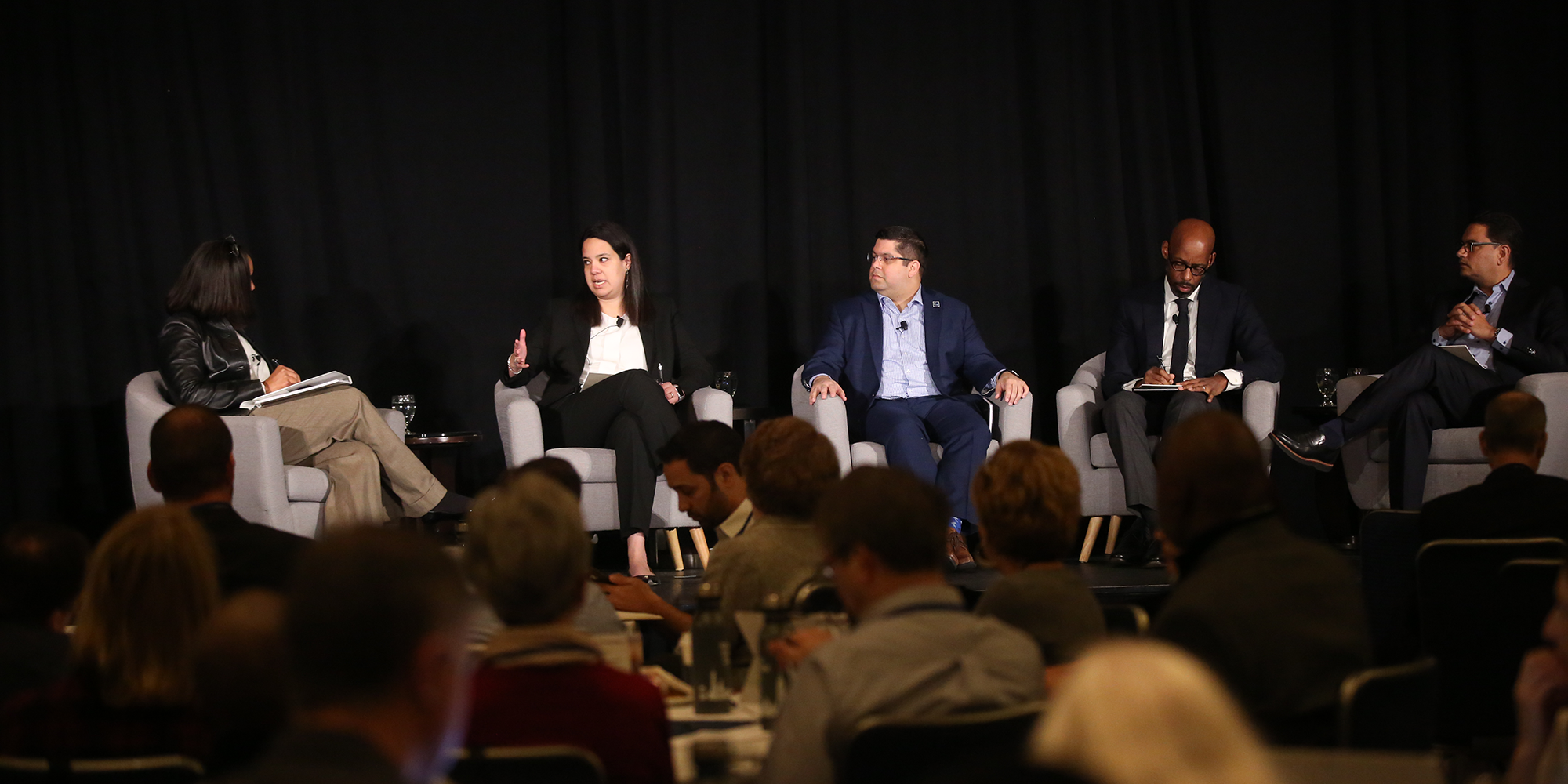The CAPR Conference: Spotlighting Equity in Developmental Education and Beyond
By Hayley Glatter

Black and Hispanic college students are more likely than their White peers to be placed in remedial courses, which have completion rates below 50 percent and may contribute to lower graduation rates. Add that dynamic to the reality of changing demographics, shifting labor market demands, and evolving state and federal policies, and it becomes clearer why equity has become a more central issue in the developmental education community. And speakers at the CAPR conference did not shy away from the conversation.
Throughout the two-day convening on November 21 and 22 in New York City, researchers, educators, and policymakers emphasized the importance of disaggregating data, rethinking college access, and implementing reforms that take college context and student demographics into account. The discussion particularly resonated because, as Harvard Graduate School of Education Dean Bridget Terry Long noted in her keynote address, it’s not ACT scores or essay prompts that act as true gatekeepers to higher education—it’s remedial courses.
“If we want to make higher ed available to all, if we think education does not end at grade 12, if we believe all of the data that everyone in this country needs … skills past high school … then we need, as higher education institutions, to figure out how to support them,” Long said.
In addition to acknowledging that higher education is not doing its job if it only serves as a ladder for the privileged, conference speakers discussed how the language surrounding developmental education sends implicit messages about who does or does not “deserve” to be a college student. Several presenters discussed the deficit mindsets that often permeate developmental education, as students internalize the notion that because they’re not assessed as college-ready, they’re not college material or, as Cuyahoga Community College’s Michael Schoop said, they’re, “not quite tall enough to ride the ride.”
One way to begin to shift this dynamic is by recognizing the value diverse students bring to the classroom, Complete College America’s Yolanda Watson Spiva emphasized. It’s necessary, too, that those who want to improve dev ed are cognizant of their own racial and sociocultural biases and how those biases may affect how they think and talk about college access. Ultimately, it’s not enough to just get disadvantaged students through the door.
“At the end of the day,” Watson Spiva said, “if we’re really talking about equity, it’s about the supports that get them to the finish line.”
Conference speakers also homed in on the ways researchers can leverage their data to really understand who reforms are or aren’t working for. In several breakout sessions, presenters featured sub-group analyses that reflected how well programs serve students from different backgrounds. Massachusetts has brought that lens to its statewide data reporting system, which highlights glaring inequities, said Elena Quiroz-Livanis of the state’s Department of Higher Education.
“The minute we started disaggregating the data was the minute we realized there were major racial disparities,” Quiroz-Livanis said.
Elena Quiroz-Livanis discusses equity during the Thursday morning plenary at the CAPR conference. Videos the plenaries and keynotes are available on the conference website.
These conversations are not, of course, new. Vilma Mesa, a mathematics and education professor at the University of Michigan, noted that marginalized communities have been discussing equity for a long time. She welcomed her White colleagues to the table and said moving forward, another vital concept needs to be considered in conversations about diversity, equity, and inclusion: social justice.
| Hayley Glatter is a communications associate at the Community College Research Center. |
